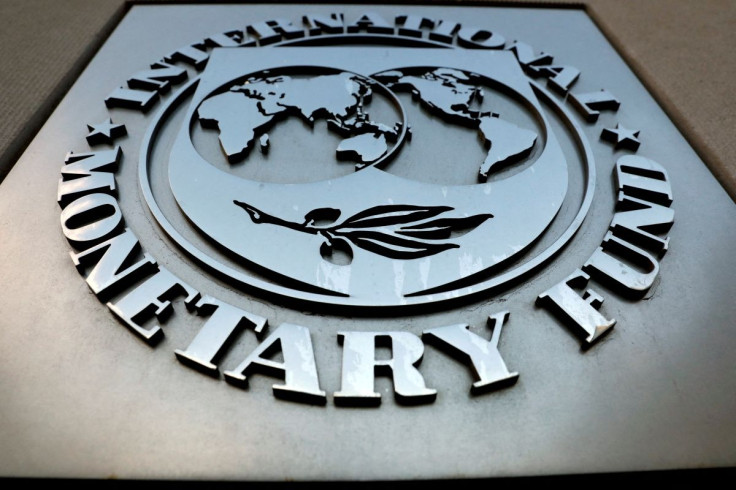Exclusive: EU Considering Curbing Russia's Rights In IMF Over Invasion- Sources

European Union officials are examining curbing Russia's influence and access to finance at the International Monetary Fund following its invasion of Ukraine, six officials told Reuters.
This scenario now under discussion would add to the pressure on Russia's economy and financial system and also mark an important symbolic step, deepening Moscow's international isolation.
One option under consideration is to remove Russia entirely from the institution that acts as a lender of last resort, officials said, though some noted that would prove difficult if not impossible.
"There is a discussion, but kicking Russia out entirely is probably unrealistic because of required quora," one senior euro zone official said, referring to the wide support needed among countries that include China.
Other options being examined include the suspension of Russia's voting rights as well as blocking its access to a special IMF currency, the Special Drawing Rights, the officials said.
A spokesperson for the IMF did not immediately comment.
Russia has been economically isolated after Russian forces invaded Ukraine in the biggest assault on a European state since World War Two. Moscow calls the assault a "special operation."
IMF curbs could be part of another round of sanctions, as the war in Ukraine enters its second week.
Russia has already been hit by a freeze on its central bank assets, a ban from EU, Canadian and U.S. airspace, the removal of a number of its banks from the SWIFT international payments system, and sanctions on a clutch of Russian tycoons.
The United States and the EU are now worried that Moscow, cut off from much of its $630 billion reserves, could have access to $17 billion in IMF reserves it received last year when the IMF boosted them to fight the COVID-19 pandemic.
The SDR is an IMF currency based on a basket of dollars, euros, sterling, yen and yuan. To spend the $17 billion in SDRs, Russia would have to find countries willing to exchange them for the underlying currencies, a prospect seen as unlikely.
PRESSURE BUILDING
The officials confirmed that while curbing Russian membership rights in the IMF and blocking its access to the SDRs were discussed, the discussion was even broader, concerning Moscow's membership.
"There is on ongoing discussion to kick Russia out of all international financial institutions," a second senior euro zone official said, adding though the discussion on the IMF was chiefly about how to prevent Moscow from using its SDRs.
However, ejecting Russia from the IMF entirely may not be legally possible, another official said.
"The consensus legal reading is that it cannot be done. Even for members guilty of genocide it was not done, because it would require proof of a legal breach of the IMF agreement, so it very unlikely," the third official said.
Asked when the talks could come to a conclusion, the first official said the issue was urgent, but some other members of the IMF, which groups 190 countries, may object.
One of the officials said Russia's rights were being examined because of concerns it could use the IMF to avoid sanctions put on the Russian central bank.
"The United States is also looking into this. But ... China, India and others may be problem," the first official said.
U.S. Republican lawmakers have also urged U.S. Treasury Secretary Janet Yellen to block Russia from exchanging the $17 billion in IMF reserves it received last year.
They said $650 billion allocation of Special Drawing Rights to IMF members had undermined previous sanctions on Russia.
© Copyright Thomson Reuters {{Year}}. All rights reserved.





















